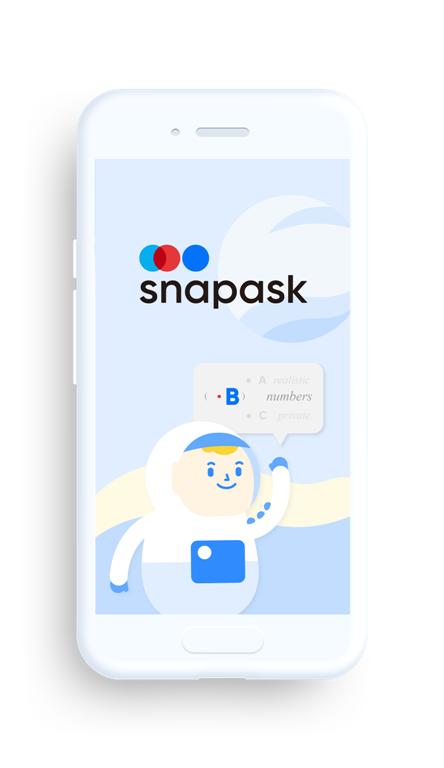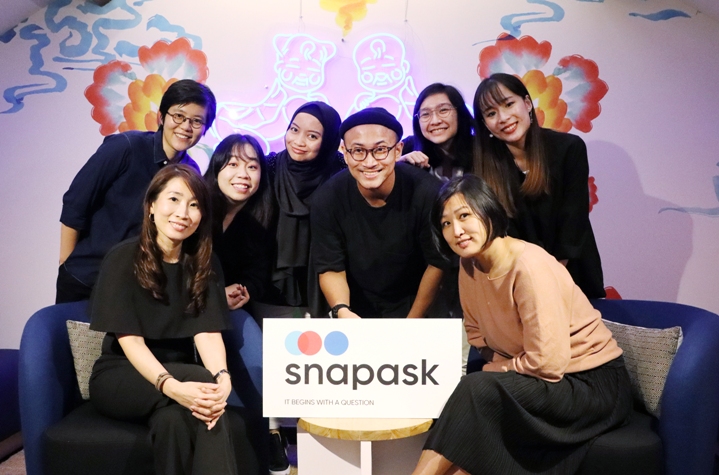Snapask, a Singapore-headquartered platform for holistic self-directed learning, officially published its first white paper in partnership with the National Tsinghua University Institute of Learning Science and Technologies. The research shows that independent, self-directed learning is the future of education.
The study, which Snapask conducted to better understand student behaviours and support the changing needs of self-directed, proactive learning, analysed data of nearly 4 million students ranging from first (primary school) to twelfth grades (secondary school) and over 350,000 active tutors, across seven markets – Singapore, Hong Kong, Taiwan, Malaysia, Indonesia, Japan, and South Korea.
The demand for and interest in online learning has increased since the outbreak of COVID-19, bringing online learning to the center stage. Compared to January 2020, Snapask’s active users in Asia-Pacific increased by an average of 80% each month from February to May 2020. During the Circuit Breaker period in Singapore, due to school closures and social distancing rules in place, Snapask saw a rise in subscriptions by 114%.
Self-directed learning in Asia-Pacific in the 21st century
Through its research in 2020, Snapask saw a change in Asia-Pacific education policies. Singapore’s Ministry of Education (MOE) identified a suite of core values and competencies that are increasingly important (“21st Century Competencies”), which included self-directed learning in the list of key learning competencies that are essential to students to prepare for their future. In 2019, the Taiwan government also announced a new national curriculum that emphasises new core competencies.
The study revealed that high schoolers (10th-12th grades) utilised Snapask to post questions most frequently in Asia-Pacific, mainly due to higher academic demands, including national exam preparation. Math and Sciences accounted for nearly 70% of the questions, with English coming in a close second. In Indonesia, 73% of users were high schoolers, and high school seniors (12 graders) represented 45% in Japan.
“The significance of self-directed learning will only increase with the current fast-paced lifestyle and dynamic workplace. Over the past decade, technology has permeated many professions, altering human resource evaluation standards. Technology has also created a wide variety of new career opportunities,” said Timothy Yu, Founder and CEO of Snapask. “Self-directed learners have a competitive edge because of their ability to learn new skills that are in line with changing times. Working with the National Tsinghua University Institute of Learning Science and Technologies to analyse primary data on education trends was a pleasure. We hope this is a starting point for the collaboration of stakeholders in education to inspire and realise self-directed learning.”
Snapask users are 27% more proficient in self-directed learning

Snapask pointed out that the current educational system is still teacher-focused and falls short of adequate self-directed learning motivation. The infrastructure is also not optimised for every individual, and hence, most students remain dependent and interested learners.
In light of this, the study also revealed that 75% of Snapask users are 27% higher in self-directed learning proficiency. The most proficient users have designated tutors for their questions and spend time browsing sites of extra-curricular knowledge. The findings indicated that students understand what learning methods are suitable and demonstrate the willingness to learn outside of the classroom.
Snapask encourages and accelerates self-directed learning
In Singapore, more than 90% of parents view self-directed learning as one of many ways to learn, rather than an essential competence that needs to be developed; and about 87% of parents are not confident about their kids being able to learn independently.
“We offer multifaceted learning tools, from always-on, one-on-one tutoring services, to exam preparation courses. We also emphasise on developing practical soft and hard skills that our users can apply in both academics and the workplace. All our offerings are crafted based on the self-directed learning approach and aim to inspire a life-long interest in learning,” said Kelly Chen, Head of Singapore of Snapask. “Self-directed learning is truly foundational for the life-long learning journey”.
Snapask will invest USD10 million to provide high-quality resources to help students learn and make progress to become self-directed learners, which involves the development of content based on the Singapore MOE syllabus. The company is aiming for a 300% growth increase in 2021.
For more information, please refer to Snapask White Paper – 2020 Self-Directed Learning in the Asia-Pacific Region.


